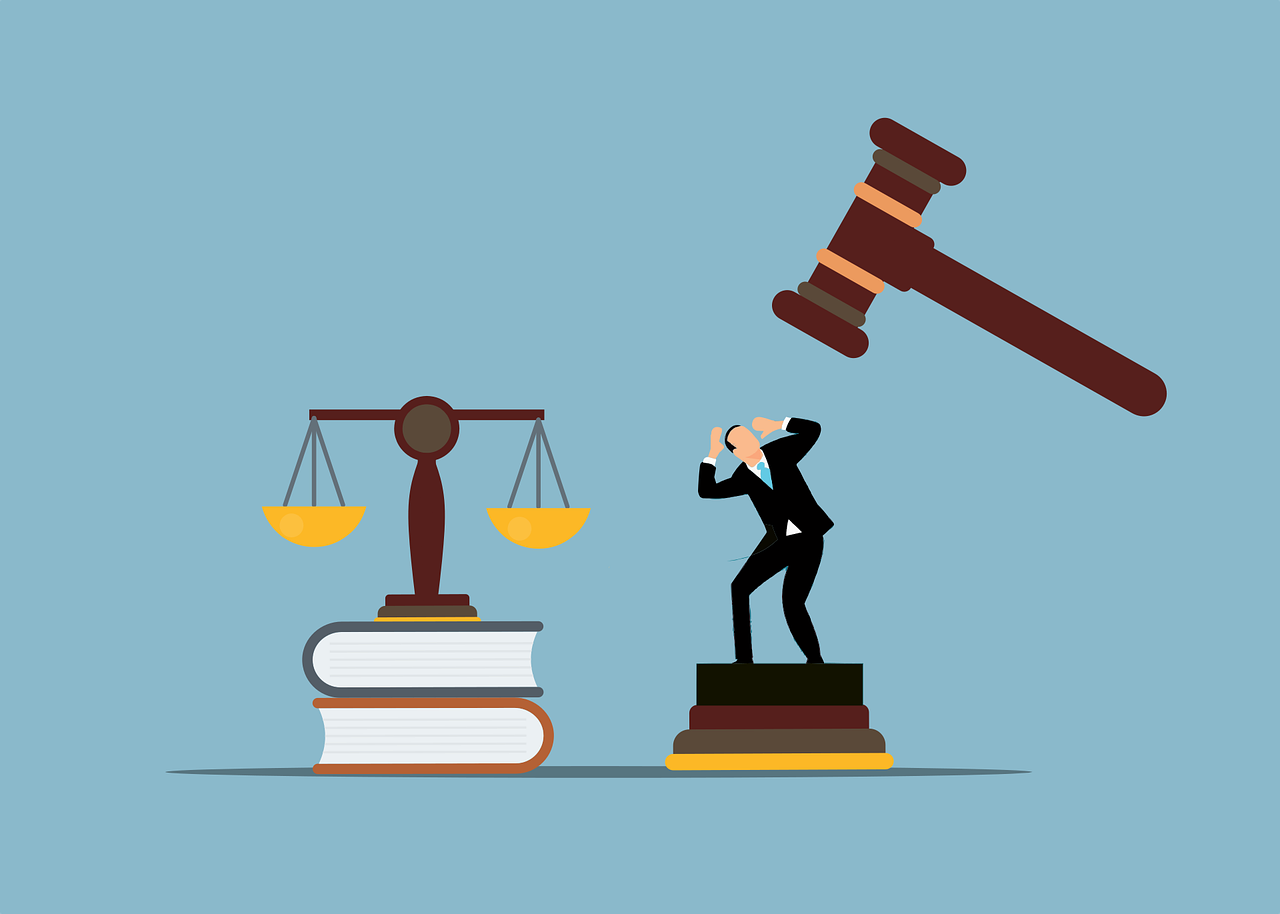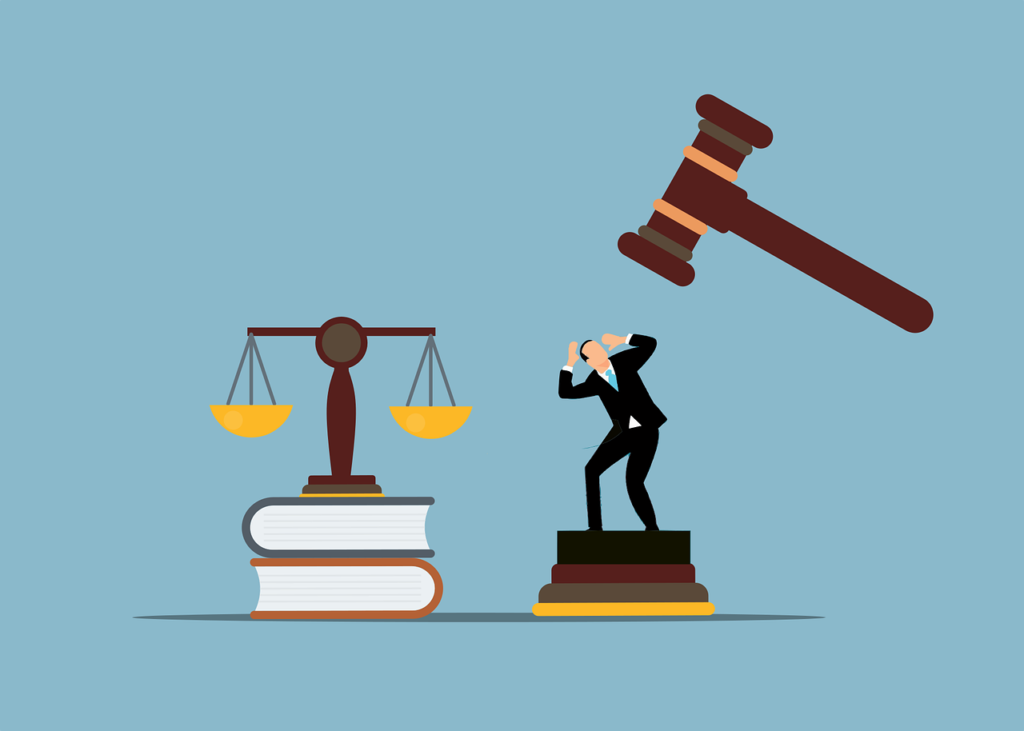Published On: 1st July, 2024

Authored By: Smriti Verma
Amity University, Lucknow
RAMIFICATIONS OF FABRICATING ALLEGATIONS OF RAPE AGAINST AN INDIVIDUAL
*A clear conscience scoffs at a baseless indictment.
ABSTRACT
India is still learning how to relate to, interact with, and humanely rehabilitate victims of rape—a terrible and painful crime. The government responded to criticism after the horrific Nirbhaya rape case by forming the Justice Verma committee to improve the criminal justice system. In reaction, definitions of rape were expanded, and the crime was punishable more severely. Rape laws were changed.
Regrettably, the abuse of the aforementioned laws to bring false claims of rape against males in India is a problem that is frequently disregarded, and our criminal justice system is far behind in providing a consistent, fair, and efficient remedy for them. India has not yet developed a no-crime categorization or anonymity for rape acquittals in situations when the charge of rape is found to be untrue. Malicious prosecution in rape cases can also result in financial hardship, reputational harm, psychological distress, and job loss for the accused. This study aims to determine the efficacy of the legal remedies now accessible to Indian citizens accused of false rape, as well as the judicial interpretations of such remedies.
This article seeks to shed light on the nature and specifics of these accusations while investigating the data’s significance for a number of academic and policy-related issues. Additionally, it will evaluate assertions that discussion of this subject is risky and ought to be avoided as well as critically look at some of the recent literature and scholarly claims in this field, focusing in particular on the frequency of false complaints.
Finally, the article sets out a future research agenda in which the complex issues raised by false allegations can be carefully considered, and the scale, impact, and pathways to accusation can be better understood.
KEYWORDS- Rape Cases, False Claims, Efficient Remedy, Psychological Distress.
INTRODUCTION
The notion of rape includes coerced sexual activity. “Sexual intercourse with a woman against her will, without her consent, by coercion, misrepresentation, or fraud, or at a time when she is intoxicated or duped, or in any case if she is under the age of 18,” is the definition of rape. Not only has rape become a far more serious crime in India, but charges of fake rape[2] are also rising. The number of rape cases is rising at an alarming rate; the nation cannot be deemed safe unless there is a consistent drop in these incidents.
Since our nation has the greatest prevalence of rape worldwide, the term “rape” has been widely used. Rape is a sexual offense that is prohibited and involves having sex without the victim’s consent. It can be carried out by force or the threat of force. Previously believed to be the product of unbridled sexual desire, rape is now understood to be a pathological exercise of power over a victim. Since the Nirbhaya[3] event shocked the entire nation and changes to the rape law were believed to be necessary, the Indian government is making every effort to thoroughly examine the situation and make the necessary corrections. In order to protect women and give them a sense of security, the Justice Verma Committee made a number of recommendations that were included in the Indian Penal Code of 2013. However, many women have begun to take unfair advantage of this protection and misuse it in order to achieve their unwanted gains.
Prior to delving into the Défense against false rape cases in India, let us first examine the Indian context and the data pertaining to the frequency of fake rape cases or allegations. This demonstrates that fictitious rape allegations are not just a product of the mind but rather a reality in India. The regulations passed are not gender-neutral, and those who intend to abuse them are taking advantage of this by using them as a double-edged sword. For retaliation, hostility, blackmail, or other motives, false accusations of rape are brought in connection with allegations of sexual assault or harassment.
RESEARCH METHODOLOGY
Based on both primary and secondary sources, including journals and websites, this article draws upon both descriptive and analytical research. Primary sources consulted for this analysis include Supreme Court judgments and All India Reports.
RAPE IN ACCORDANCE WITH IPC SECTION-375.
According to section 375 of the IPC, rape is defined. The six prerequisite conditions listed in this section are as follows; meeting any one of them will be considered rape.
- In defiance of her desires.
- Without her permission.
- When her permission has been acquired by instilling fear of harm or death in herself or any other person in whom she has an interest.
- With her consent, when the man is aware that she does not consider him to be her spouse and that she is giving her consent because she thinks she is legally married to another guy.
- With her consent in cases where, at the time of consent, she is incapable of understanding the nature and implications of that to which she is giving consent due to intoxication, mental instability, or the administration of any stupefying or unwholesome substance by him or through another.
- When she is under sixteen, with or without her permission.
FALSE ACCUSATION OF RAPE IN INDIA
The incredibly comprehensive approach to delivering justice in rape cases is evident even from a casual perusal of the recently passed legislation. But it also begs the question of what would happen to the wrongfully accused individual if a statute like that, which carries the aforementioned severe penalty, is abused. It is important to acknowledge that if a woman unjustly charges a guy, the victimization of that individual will be significant, without diminishing the seriousness of the issue of rape or the fact that many incidents go unreported to the authorities. The accused’s statement will be given far less weight and gravity than the purported “victim,” whose statement will be given far more weight and truth value.
To some extent, conduct and supporting evidence are helpful, but what can someone does when a sexual act is performed with consent, but the information is later misrepresented and presented as non-consensual It has become apparent that there is a rude and dishonourable tendency of filing fake rape allegations[4]. It renders the legislation protecting victims of rape irrelevant. It also mocks and disparages the amendment and the reality that the strict regulations passed by the parliament to stop crimes against women have actually made matters worse.
A Delhi court cleared the four members of a family charged in the case, stating that it’s “becoming a very difficult job, nowadays, for the courts to differentiate the genuine rape cases from the false ones”. A lady who warned men to pay her or face a rape accusation recently had her extortion scheme exposed by the Jaipur police. The National Commission of Women’s Shamina Shafiq said, “It is sad that people are abusing the rape laws to settle scores, while there are so many women who have nowhere to turn to in genuine cases.” If this becomes the norm, how will they muster the courage? Additionally, the victim’s family will discourage her from filing a complaint.
Concerned about the “misuse of rape laws” to indict males, a special fast-track court cleared a man of accusations related to rape and ordered the court officer to file charges against the woman for providing false testimony. Judge Virender Bhat of the Additional Sessions said, “This is a classic example of how men are being implicated in rape cases to settle personal scores.” These women, who end up being the harassers rather than the victims, should be punished in accordance with the applicable legal rules. This is a prime example of how rape laws have been completely abused.
REPERCUSSIONS OF FALSE RAPE CLAIMS
- Effect on the mind.
The false accusation of rape is a serious subject that affects the accused person’s life, leaving them traumatized and never forgetting the incident. The accused’s mental state is profoundly affected, rendering any recovery from the shock and anguish he has experienced unattainable. Isolation and self-loathing result when someone has a mental illness. Along with the charged person, other family members and close relatives may also be impacted by this disease, including the person’s wife, if any.
- Deaths by suicide[5]
Horrible behaviours like self-harm or suicide are also committed by certain men. Some make the decision to end their lives because they feel that they are no longer able to function in society and leave their families in a dignified manner. Some people attempt to end their own lives out of fear of serving a lengthy prison sentence.
- Loss of dignity and honour[6]
A person loses their honour and dignity when they are falsely accused of rape because it damages their reputation and makes society view them as a proven criminal. Defamation and harm to the accused’s positive social standing also result from it. In addition, it causes distress and embarrassment, and even after the court’s acquittal, people continue to view them negatively. The women who report being raped also suffer from diminished dignity as a result of the situation.
- Erroneous judgment
In all facets of justice administration, the natural justice principle ought to be adhered to. Conviction for false and malicious accusations would only amount to a miscarriage of justice.
PENALTIES FOR MAKING FRAUDULENT RAPE ALLEGATIONS
The Indian Penal Code has codified certain offenses wherein falsifying has occurred, and the following defences can be used in the event that a false complaint has been filed, false evidence has been presented to prosecute an innocent person, or there is any such intention to accuse an innocent person:
Section 182: False information intended to persuade a public worker to exercise their legal authority in a way that would harm another person.
Individuals who provide false information to public servants with the intention of causing harm or knowing that the harm they will create is likely will be the result of their actions.
- to act or fail to act in a way that a public servant would be expected to act if he were aware of the actual circumstances surrounding the information being provided, or
- to exploit a public servant’s legitimate authority for the purpose of hurting or annoying someone else, violating the law, will result in either a fine of up to one thousand rupees or six months imprisonment, or both.
According to the aforementioned section of the IPC, if someone has knowingly given false information to the police in order to start wrongful proceedings against another person as retaliation and subject that person to mental harassment, they will be subject to a punitive penalty that could last up to six months.
Section 186: Preventing a public servant from carrying out their official duties.
Anyone who wilfully hinders a public servant in the performance of their official duties faces a maximum sentence of three months in either type of jail, a maximum fine of five hundred rupees, or both.
Section 191: Presenting fraudulent evidence.
Giving false evidence is defined as making a false statement that one knows or believes to be false or does not believe to be true, and is forced to do so by an oath, an express legal provision, or a legal obligation to make a declaration on any subject.
Section 192: False evidence fabrication
Persons who intentionally create circumstances, falsify entries in books or records or create documents with false statements with the intention that these circumstances, false entries, or false statements may be used as evidence in court cases, legal proceedings before public servants, or arbitrators, and that these circumstances, false entries, or false statements, when used as evidence, may lead anyone asked to form an opinion based on the evidence in such a proceeding to entertain an opinion that is not accurate regarding any material point relevant to the outcome of the case, are considered to have “fabricated false evidence.”
Section 193: Penalties for producing fraudulent evidence.
In addition to being subject to a fine, anyone who knowingly provides false testimony at any stage of a legal process or fabricates false evidence with the intent of using it at any point in the process faces a term of imprisonment of up to seven years in either type of jail. In the event that false testimony is intentionally provided or fabricated in any other situation, the punishment for both types of people is the same and can reach three years in jail.
Section 195: Providing misleading evidence or making up evidence in order to get someone found guilty of a crime that carries a life sentence or more
Anyone who fabricates or provides false evidence with the intent to cause someone to be found guilty of a crime that, according to the law currently in effect in India, is not capital but instead carries a life sentence or a term of imprisonment of at least seven years, will be punished in the same manner as a person found guilty of that crime.
Section 196: Utilizing false evidence.
Corrupt individuals who attempt to present evidence they know to be false or contrived as genuine or true will face the same penalties as those who provide or invent false testimony.
Section 199: False statement made in a declaration that is legally admissible as proof.
If he makes or subscribes to any declaration that a court of justice, public servant, or other person required by law to accept as evidence of any fact touches on any point material to the purpose for which the declaration is made or used, they will punish him as though he had given false testimony for any falsehood he knew or believed to be false, or did not believe to be true.
Section 200: Presenting a misleading statement as factual even though it is
Anybody who corruptly uses or attempts to use any such declaration as true while knowing it to be false in any significant way will face the same penalties as if they had provided false testimony.
Section 211: False allegation of offense with intent to cause harm.
Anyone who, knowing that there is no just or lawful basis for such a proceeding or charge against any person, institutes or causes to be instituted any criminal proceeding against that person with the intent to cause harm to others faces up to two years in prison, a fine, or both. If the criminal proceeding is brought on the false accusation of an offense carrying a sentence of death, life in prison, or imprisonment for seven years or more, the offender faces up to seven years in prison, a fine, and a term of either description as well as a fine.
In addition, section 340 of the Code of Criminal Procedure stipulates that a person who provides false testimony or affidavits in a court hearing may be the subject of a complaint under two different circumstances. The person has first provided a false affidavit in a court action, and second, the court believes it is appropriate to investigate the matter further in the interest of justice regarding the offense the person committed.
Additionally, under this section, a notification is sent to specific police officers requesting an investigation to see whether any fraudulent evidence was used to fabricate records and present a false case.
A list of Indian cases of false rape
- Six men were accused of false rape by a Jabalpur girl.
In a six-year period, a Jabalpur girl has brought six rape complaints against five different men in the city. After marrying the first man she accused of being a rapist, she filed new rape, domestic abuse, and dowry claims against him. Following this, between July 2022 and July 2021, she brought four more rape charges against four separate males.
- Teenager from Indore tries to convince police into believing she was raped.
After a 19-year-old girl claimed that she was kidnapped, gang-raped by five men, and dumped on train lines, Indore police filed a rape complaint in January 2021. When the tenant of the home where she resided stated in her statement that she was one of the culprits, the police took her into custody. After extensive research, the girl and her inner companion admitted that they had made up the story. Throughout the investigation, the girl continued to alter her account. She may have devised a phony scheme to obtain additional funds because she was previously involved in a case similar to this one and received compensation from the government in the amount of Rs 2 lakh.
- Manager commits suicide after a lady reports him for sexual harassment.
On August 30, Amit Kumar took his own life. In a five-page suicide note, he claimed that his employer, Optum Global Solution, had subjected him to severe humiliation due to unfounded allegations of sexual harassment.
- The CBI is ordered by the Jharkhand High Court to investigate a female police constable’s allegedly false allegations of rape against her male colleague.
A CBI inquiry into a case in which a female cop reportedly made a false allegation of rape against her male colleague has been ordered by the Jharkhand High Court. The accused, Anil Kumar, submitted a petition on Wednesday asking for a high-level investigation and damages for the 13 months he was imprisoned. Consequently, the instructions were issued.
CONCLUSION
Horrible acts such as rape can cause years of trauma to the victim. Justice for the victims must be served, and it must be treated seriously. Yet innocent people cannot suffer unjustly in the name of justice for these victims. It is a serious problem that has a negative impact on the life of the person who is wrongly accused of rape, as evidenced by the statistics and incidents. Suicide is a common outcome for sufferers who lose their social lives and mental calm. To prevent this from happening, the legal remedies already in place are frequently insufficiently harsh and ineffective as a deterrent. To guarantee that false accusations of rape do not ultimately destroy the accused, both institutional and societal reforms are required. Raising a child by force is a severe crime, but not one that should destroy innocent people’s lives. Because of the prevalent social norms, it is necessary to prevent false accusations of rape, which damage a person’s life.
Reference(s):
[1] BA.LLB (Hons.), Amity University, Lucknow
[2] Vinod Chaudhari And Another v. State Of U.P. And 2 Others
[3] Mukesh & Anr vs State For Nct Of Delhi & Ors
[4] Sanjay v. The State Of Madhya Pradesh
[5] https://indianexpress.com/article/cities/delhi/dont-want-repeat-of-incident-kin-of-gurgaon-teen-who-killed-himself-6400948/
[6] Jagmohini vs State (Gnct Of Delhi) & Ors. on 6 August, 2013





